#But it’s funny how I sometimes obsess over plot details and major character moments and remember I’ll probably never write it
Note
Your post about romance was so spot on and this is from someone who really likes reading romances some of the time. I just wish there were more books where friendships (which after all make up the majority of people's relationships!!) were given the same weight and importance as romance gets unthinkingly. Like, I want books or fic which show the development of two (or more) new friends *as the plot and main part of the book*, and the same thing for the progression of pre-established friendship.
Human relationships are varied and complex and interesting and limiting writing to mainly concerning romantic or dating ones is infuriating! I enjoy reading character driven stuff, which is why I like some romances but I really want to see similarly detailed deep studies of friendship. Friendships are so important, and romantic relationships do not supersede them. Obviously there is gendered bias against romance as a genre but that is not the only reason to be uninterested in romance damnit!
Sorry for ranting in your inbox about romance and thanks for the post
Hah thank and welcome. Very true!
Yeah, the problem is not just how ubiquitous romance is but the inevitability of it. So many people are so much in the habit of hanging their emotional investment on ‘couples getting together’ that not putting one in is a risk, as a creator, and the faint suggestion of a possibility that a romance might eventuate between two characters constitutes a promise that the audience will be outraged to see not followed through.
So making a story focus at all on a relationship between two people who are considered valid potential romantic partners means having to go through incredible backflips and contortions as a writer to get away with not pairing them up, or there will be outrage. There will be outrage anyway, but hopefully on a contained scale that doesn’t have people throwing your book away.
(The easiest way, of course, is to give one or both of them an alternate partner, but then you either have to build up that relationship as the central focus instead, because you aren’t allowed to love anyone that much and not be romantically involved or be romantically involved For Real with anyone but whoever you love most, or accept that you’ve plastered on a beard of some kind in a way that at this point makes your main duo look even more romantic to people who are looking for that in the first place, even if it lets you write a plot that doesn’t acknowledge this.)
This has contributed enormously to the cultural truism ‘men and women can’t be friends.’ They aren’t allowed to be. And this weird intense romantic pressure is now increasingly extending to same-sex friendships, and it’s like...it’s good that gay visibility and acceptance are growing! That’s great!
But it means that all relationships are increasingly exposed to this honestly fucked up set of expectations. That every single love of any intensity is romantic and probably sexual. That that’s the only love that’s real, or that really matters. With occasional exemptions carved out for parents.
And that’s cultural, I want to say. The inclusion of and an interest in the romantic lives of characters in fiction is definitely natural and practically inevitable, but the outsize role it occupies in our current media culture is abnormal and totally non-compulsory. The central role of romance in so much of narrative is just...a pattern, a narrative schema that currently holds sway, born of an assortment of historical accidents and trends, and I don’t think it’s a good one.
I think it would be better for us as a culture and all our individual relationships for that particular social construct to be broken down.
Because this cultural obsession with The Romance in media mirrors and continually recreates the obsession with The Romance in real life. You know how many people are making themselves miserable by either being in a relationship predicated on the need to have one, any one, rather than actual mutual affection, or about not having a love interest currently at any given moment?
Like, quite separately from the actual frustrated romantic feelings themselves, people feeling like they are less or failures or just...unfinished somehow, because they don’t have a romantic partner. It’s so harmful and absurd! We all know this!
And there are of course a lot of sociological factors that have led to that point as well, but it’s linked particularly closely I think to the atomization of modern society.
You’re not likely to retain any particular community for long--we move around so much over the course of our lives, anything you have is designed to be taken apart. School friends are only rarely retained after school, work friends are only until you get a new job, family is quite often something to be avoided or something you have to leave behind, and not usually an extended network anymore anyway.
We are always moving into new contexts, or knowing we might be moved, and holding onto relationships from one context into another is generally regarded as an unusual feat betokening particular, though not lionized, devotion, and leaning on these relationships ‘too much’ or pursuing them with ‘too much’ energy is regarded with deep suspicion.
This, too, is not particularly normal in the human experience. We are not psychologically designed for this level of impermanence. And we have developed very few structures as a culture thus far to make up for it, which is why the modern adult is so famously, dangerously lonely.
But we have all these social protocols for acquiring a person and holding onto them. A person who’s just yours, all yours, who it is promised will fulfill all those gaping needs all by themselves, and if they don’t it’s because you or they are wrong, and need either a different partner or fixing.
The fact that this is insane and not how romance works over 90% of the time is irrelevant to the dream of it, and the dream overwhelms and controls the reality. I agree that codependency is really fucking romantic, and having a kind and supportive mutual one is a lovely fantasy! It’s just...
A lot of harm eventuates from pursuing this fantasy in reality with a media-based conviction that it is 1) a reasonable thing to expect and 2) a necessary precondition for wellbeing and worthiness.
But we have poured so much cultural freight and need into this one single relationship format. At this point having need in any other direction is regarded as disordered and suspect and probably a misdirected application of sexual desire.
The law, too, has put a lot of energy into supporting the focus on seeking the romance as life goal, because the nuclear family is built on the codependent marriage, and capitalism likes the nuclear family very much. The nuclear family is extremely vulnerable to market pressures and bad at collective action, and tends to produce new tiny humans whose main social outlet has been within the school system, which is specifically structured to condition you to accept abusive workplace conditions as a normal precondition of existence, and not to attempt too much intimacy.
Ahem. Spiraled there. But! It’s all connected! Many of the privileges piled onto the institution of marriage were put there specifically because the nuclear family was considered desirable for the expansion of the economy. That’s clearly documented historical fact.
So yeah, the modern cultural obsession with the romance is a symptom of collective emotional disorder, and it chugs along at the expense of the more complex emotional support infrastructures most of us need and deserve.
It’s not just about me wanting representation, wanting an image in the narratives of my culture where I can see myself with the potential for happiness. Everyone needs this. We learn so much about how to be, how to relate to others, from media at this point, since the school system and other weird age-hierarchy stuff keeps us largely segregated from human society for a majority of our growing years and limits our exposure to live examples.
So the paucity of in-depth explorations of friendship, of mutual support, of widespread narrative acceptance that you can have a good life without a romance as its central support pillar, is harmful to people in general.
-
It’s funny, I get frustrated about this periodically, when a piece of media lets me down, or even when I’m following along a funny piece of meta and then the punchline is ‘and the ace character is obviously in denial about how they’re already dating their favorite person’ or whatever.
(The meta is annoying on a surface level and distressing on a deeper level because it’s a threat; so many times a good platonic relationship will buckle under public pressure and it doesn’t matter how asexual, how uninterested in romance, how emphatically platonic the affection has been established as being, The Romance arrives in the next installment of the story because it’s what people expect. Which reinforces the general perception that any other love is illegitimate, lesser, and as soon as it’s meant to be taken seriously it has to be crammed into that one valid shape, and invalidates future insistences in the same mode.
Seriously people stop doing this, we long since reached the point where a character saying in words ‘I have no romantic interest in [person]’ is perceived as a glaring neon sign that they’re destined to get together and that does not do good things for fostering a culture of consent. Obviously people are in denial sometimes but it should not be understood to be the rule.)
But I don’t get upset about it until someone starts in with reasons I’m bad and wrong for not liking these norms.
Like, whatever, media does not cater to my needs, I’ll cope, but when people start trying to get in my head and make me not only responsible for my own discomfort that I’m managing thanks but dishonest and malevolent I...get upset. There’s history there, okay.
‘You don’t care about this ship because you’re homophobic’ ‘you don’t want a love interest in the sequel because you’re racist’ ‘you don’t like romance in stories because you’re a misogynist’ fucking stop.
And occasionally it’s like ‘i guess you have the right to feel that way but how dare you talk about it where other people might hear’ which...well, is particularly common and particularly ironic in the context of people hung up on gay representation.
If we as a society had a healthy relationship with romance, there wouldn’t be negative side effects to that crowd’s pursuit of their worthy goal of applying that schema in places it has been Forbidden, but as it is we don’t, and there are.
#aromanticism#romance#society#social constructs#i throw salt#on a related note#i know The Untamed was Ambiguous because of censorship#but i was still enjoying not being able to tell dammit#you can ALWAYS tell normally#and that's so boring#people complain less about getting fake foreshadowing about who the murderer was than about not knowing who's interested in who#and who has a real shot with their target#being forced to be ambiguous was making those actors bring their A game#so i still wish i could have watched it play out without spoilers#because it's SO RARE that you can't immediately tell which way a story intends itself to be read on that front#and it was such a nice change#and i have legitimately cried several times over the loss of the joy i was getting out of that relationship not being so fucking dull#because like it's still fun and well done and stuff but it's not INTERESTING#i didn't even realize how much i was missing that until i briefly had it and it was taken away#so now i get sad a lot when i think about it#and it sucks that the forms for including romance in our media are so formalized#that the only way to get that realistic unclear coalescence of emotional energies#is by writing a romance and being forced to lie about it#a nonny mouse#ask#hoc est meum
70 notes
·
View notes
Text
Eurovision Song Contest: The Story of Fire Saga - Icelandic review
Eurovision Song Contest: The Story of Fire Saga is a Netflix-produced affectionate parody film about Eurovision starring Will Ferrell and Rachel McAdams. This wouldn't qualify it for coverage on this blog by itself - but as it happens, the main characters are Icelandic, Icelandic is spoken in it, and a significant portion of the film takes place in Iceland. So I think it's close enough to being of interest to readers of this blog!
As a film, my feelings on it were mixed - the Eurovision parodies were incredibly spot-on, I liked Dan Stevens' character and the amount of Eurovision cameos, and it definitely had some pretty funny moments - but it was far longer than it needed to be and wildly inconsistent in tone, flitting between utter ridiculousness and emotional melodrama played completely straight. However, this won't be a review of the film - instead, I'll be going over the portrayal of Iceland and its culture and language and sprinkling in some related trivia.
The Icelandic Opening
The film opens with a montage and a song that the subtitles identify as an "Icelandic folk song". The song is Sá ég spóa, which is indeed a genuine Icelandic folk song. The lyrics of the song go:
Sá ég spóa
suður í flóa,
syngur lóa
úti í móa,
bí bí bí bí,
vorið er komið víst á ný
which translates to:
I saw a whimbrel
in the bay to the south,
a plover sings
in the dry grassland,
cheep cheep cheep cheep,
spring is surely here again
The song references the common folk belief that the migratory European golden plover brings spring with it; we still have newspaper headlines when the first plover is spotted (or heard) every spring. The song is largely notable for being suitable for canon singing, which unfortunately can't be heard well in the movie, since the most audible part is the beginning, and the song kind of fades out before the other voices come in. I think this YouTube video is the same recording the movie uses, only you can hear all of it properly!
From there, the first chunk of the movie takes place in Iceland, in both the capital Reykjavík and Húsavík, a town in northern Iceland (the Húsavík scenes were genuinely filmed there). These scenes feature Icelandic extras and some actual spoken Icelandic, with English subtitles. Their lines are grammatically accurate and natural, clearly translated by a native speaker; however, when you're actually Icelandic, it's incredibly obvious that Pierce Brosnan (playing the main character's father) does not actually know the language. He tries, but it's only kind of intelligible, and when he's surrounded by actually Icelandic extras and the film wholly acts like he's just another one of them, it's pretty glaring.
The Names
The first really major issue to tackle about this movie is the character names.
The main characters are named Lars Erickssong and Sigrit Ericksdóttir. First of all, I understand that "Erickssong" is meant to be a pun because he's a musician - but it simply makes no sense to make a pun like this, any more than it would make any sense as a joke in English to consistently refer to somebody as someone's song instead of their son. You can absolutely make up punny Icelandic patronyms - but the part you make the pun out of has to be the name part, not the son/dóttir part, or it just doesn't register as a name at all.
But let's put that aside. Lars is an accepted first name in Iceland - but Sigrit is not, nor is Erick, and Lars is not a common name - it's pretty distinctly foreign-sounding. In general, nearly all of the Icelandic characters' names are not actual Icelandic names, and don't sound like they might be Icelandic names, either.
You might say, well, this is a comedy film, it's not supposed to be accurate. And there is some truth to that, sure. But the thing is that most of the names used in the movie aren't really humourous or systematically inaccurate in a deliberate-seeming way. Instead, they largely just sound like they're playing to your average American's idea of what generic Scandinavian names sound like, but with patronymic suffixes slapped on, and I expect the primary American audience would assume these are realistic Icelandic names.
This is unfortunate, because Icelandic names broadly really don't sound like generic Scandinavian names! We have a different alphabet from our Nordic neighbors: in particular, we don't have the letter c. And the overall sound of Icelandic is pretty different, such that the names in this movie sound distinctly foreign to us. The actual Icelandic equivalent to Sigrit Ericksdóttir would be something like Sigríður Eiríksdóttir, and in fact some of the Icelandic extras just went ahead and pronounced her last name "Eiríksdóttir". Naming her Sigrit Ericksdóttir instead isn't a joke; it's just inaccurate, and I don't think the film being a comedy really excuses stubbornly insisting on not doing the research here, especially when you involve a bunch of Icelanders who would definitely have pointed this out.
Húsavík and On-Screen Text
While Húsavík is a real place, the way it's pronounced and spelled is all over the place. I think the subtitles sometimes included the accents and sometimes not; on-screen text usually didn't include accents. It's important to note that u and ú are two different letters in Icelandic, pronounced differently; not using the accent is wrong, so although not including accents is acceptable for regular people typing in a medium where it'd be difficult or tedious to use them, on-screen text does not really have any excuse, especially in a movie that significantly takes place in Iceland rather than simply being a throwaway scene; they have plenty of time to spell the words correctly.
It's also a little frustrating that Húsavík is actually pretty easy to pronounce for English-speakers! It's just HOO-sah-veek - no sounds that don't exist in English at all. Despite this, the last syllable gets pronounced 'vick' sometimes, and in the song during the climax, Rachel McAdams' Swedish singing double Molly Sandén makes it sound Swedish and like it actually has a u instead of an ú.
Elves and Folklore
Elves are a plot point in the movie, with Sigrit being a true believer in elves but Lars not. She leaves food at a little 'dollhouse' built into a hill while asking the elves for favors. Needless to say, this is a comedic element, and the way it's used is pretty fun - nonetheless, however, I feel obliged to say that no, Icelanders do not do this. Even the true believers (who are few and far between) don't leave them offerings or pray to them for favors - and in Icelandic folklore, elves are not tiny! They're thought to live in actual rocks - no little houses necessary - and they're pretty intimidating and vengeful as described in folklore; if you were to give them offerings or ask them anything, it'd be more along the lines of pleading with them to please tolerate something you're about to do without taking bloody vengeance on you, not asking them to do something nice for you.
(The movie's use of elves was actually ultimately more accurate than it seemed; I won't spoil the details, but it's pretty good.)
Another plot point involves Sigrit's inability to sing a "speorg note", which is stated to be from Icelandic folklore. There is no such folklore, "speorg" would actually be pronounced spee-org with a hard g if it were an Icelandic word, and the way they're pronouncing it is once again something that sounds more vaguely Swedish than like Icelandic of any kind. Obviously this is a pure joke concept not to be taken very seriously.
The Problem With Winning
A major plot point in the movie is a businessman, "Victor Karlosson", who points out early in the film that if Iceland won Eurovision, it'd practically bankrupt the country. This is a genuine concern that Icelanders talk about any time we seem to have a chance of doing well. However, that scene also features someone suggesting hosting the contest in Keflavík, a town about 45 minutes outside of Reykjavík, which causes him to respond that a town of 15,000 wouldn't be able to do that. The joke here is obviously meant to be that hosting it in such a small town (actually pretty big on an Icelandic scale) is especially obviously absurd. However, I'm pretty sure I remember it being actually seriously suggested that if we won Eurovision we might have to host it in one of the aircraft hangars at the US army base that used to be in (near) Keflavík! We don't actually have any Eurovision-sized stadiums in the country, so that was legitimately one of the more realistic possibilities.
Perceptions of the Contest in Iceland
In the movie, while Lars is absolutely obsessed with Eurovision, this is implied to be pretty weird. There's a recurring joke of nobody wanting to hear Eurovision songs, and a lengthy scene in a Húsavík bar where the TV is showing a football game and one of the inhabitants makes an impassioned speech about how they should switch to Eurovision to see Iceland's entry because the contestants are from Húsavík! This is pretty hilarious, because man, Icelanders who don't like Eurovision have a hard time getting away from it when it's on! Potentially you might have a bar making a point of showing something else on Eurovision night and advertising itself specifically to Eurovision-haters, but the idea of no one in a full bar of random Icelanders wanting to watch Eurovision, especially when Iceland is competing, is pretty absurd. We're obsessed with this contest!
The bit where the teenage boy who plays drums in their band doesn't accompany them abroad because "my friends think the song contest is for losers" is valid, though; I can absolutely believe in a friend group of musically-inclined teenagers who think it's trash and they're too cool for it.
A Song in Icelandic Would Never Win
Sigrit says before the Icelandic semifinal that she wishes she could sing in Icelandic, and Lars counters by saying a song in Icelandic would never win. It's true that after Eurovision dropped the rule about all contestants singing in one of their country's official languages, most of Iceland's Eurovision entries have been in English, largely because of the perception that nobody will understand Icelandic lyrics ("Hatrið mun sigra" was only the second entry to be in Icelandic since the change).
However, a lot of songs are still sung in Icelandic in the Icelandic contest - in fact, the last couple years have required it! So technically this should not have stopped the characters from singing in Icelandic there and just translating it to English for the main event. This is a minor nitpick, though, and can be considered merely one of the many pieces of artistic license taken with the contest rules in the movie.
"Semen and Garfunkel"
There is a scene where Lars tells Sigrit that romance ruins bands, and he lists off a few supposed examples, including "Semen and Garfunkel". This probably seems like a really weird, random joke to everyone else, but it's actually kind of enjoyable when you do know Icelandic, because the Icelandic equivalent of the name Simon, Símon, is actually pronounced very similarly to "semen". It's a joke about them being Icelandic and therefore pronouncing his name that way, only probably nobody outside of Iceland would actually get it. I enjoy this.
Some Transcripts/Translations
There are a couple of pieces of unsubtitled Icelandic in the film. At the end of Ólafur Darri Ólafsson presenting the points from the Icelandic jury in the semifinal (yes, they have public jury points in the semifinal; another one of those bits of artistic license), after he says thanks, he adds in Icelandic: "Takk fyrir. Fyrirgefið þið aftur." This just means "Thanks. Sorry again [about the technical mishaps during Iceland's entry]."
During the climax of the film, Sigrit sings a song about her hometown, which has a couple of lines of Icelandic in the chorus. Our initial reaction to the [sings in Icelandic] subtitle was actually "Thaaaaat's not Icelandic," but when the chorus came on again I just about managed to make out that yes, it was in fact supposed to be Icelandic, which Molly Sandén was just pronouncing in a pretty Swedish way. The main line goes "Eina sem ég þrái er að vera með þér í Húsavík," or "only thing I long for is to be with you in Húsavík." There is another line after that, but I can't make out what she's trying to sing there at all, even after going back and rewinding it a few times.
License Plate Trivia
This is only barely relevant, but the license plate on Fire Saga's Eurovision tour bus is R 373. This is one of the old-fashioned black license plates that were in use before 1987; the R stands for Reykjavík, as license plate numbers were allocated by county. In 1987, we switched to white license plates independent of county with two letters followed by three numbers; later, when they ran out of numbers, it was tweaked so that the first number slot could also be a letter. However, some cars that had the old license plates are still on the roads today. I can't imagine why they'd put an old license plate on the bus unless it's genuinely just an old Icelandic bus with pre-1987 license plates.
The Reaction
The most realistic portrayal of Iceland in this movie is when Lars and Sigrit return from Eurovision to a crowd of extremely enthusiastic people waving Icelandic flags. Icelanders who accomplish anything cool abroad tend to be treated as heroes on their return; when our handball team won a silver at the Olympics, there was a whole sea of people and a ceremony to welcome them back, and they were all awarded with the Order of the Falcon. This is absolutely what Icelanders would do, accurate Iceland, A+.
86 notes
·
View notes
Text
The 100 rewatch: 1x12/1x13 We Are Grounders (Part 1&Part 2)
So I’ve come to the end of my rewatch of season 1. (The season 2 opener post will come soon. I’ve already rewatched it.) Overall my opinions on the quality of the season haven’t changed much, though I did like some episodes more and some episodes less this time. It was, however, interesting to see how much foreshadowing there was of later events and how many moments later got callbacks and parallels in later seasons.
I’ve also tried to now keep track of the timeline and body count in every episode...but I’m now starting to realize, after how confusing the numbers got in 1x11 and in these two episodes, that I’ve probably given it much more thought than the writers ever did. In the end, I had to look up The 100 wiki – but it seems just as confused as I am.
Back when I first binged the show, some 7 months ago, I was posting about it on SpoilerTV in the daily discussion threads. Sometimes I wrote just a few lines, but about this two-parter, I wrote a very detailed post - and I wish I had posted it on Tumblr, too. Maybe I’ll dig it up and post it as an annex or something.
Funny thing, before that, after 1x11, I made my list of predictions for the two-part finale, and all of them turned out to be true. I liked it anyway - predicting things isn’t always bad, it may mean that the storytelling is logical and that plot points were well foreshadowed. But it’s also one of the reasons why I didn’t find it as mind-blowing as the S2 one or S4 , or even S5 one. (But it’s certainly miles better than the S3 finale. Although that’s not saying much, since the latter was pretty anticlimactic and is one of my least favorite episodes.)
I’ve always felt that Part 1 was the stronger episode, and that hasn’t changed.
Ranking and ratings of season 1 episodes:
1x12 We Are Grounders part 1 - 10/10
1x13 We Are Grounders part 2 - 9/10
1x08 Day Trip - 9/10
1x10 I Am Become Death - 9/10
1x05 Twilight's Last Gleaming - 8.5/10
1x06 His Sister's Keeper - 8/10
1x03 Earth Kills - 8/10
1x11 The Calm - 8/10
1x04 Murphy's Law - 7/10
1x07 Contents Under Pressure - 6.5/10
1x09 Unity Day - 6/10
1x02 Earth Skills - 4.5/10
1x01 The Pilot - 4.5/10
Season 1 overall - 7.54/10
Part 1
One of the few things I didn’t guess about this finale in advance was Ark coming down the way it did. It’s kind of funny that Kane tried to have a sacrificial redemptive death, but Jaha got there first, and had his best and most useful and most heroic moment ever… but then the show didn’t let Jaha have a redemptive death but let him live. And then he went on to make terrible mistakes and be an antagonist for at least 2 seasons, before having a morally grey (and most suited to his character) role in S4.
Every time someone tries to sacrifice themselves on The 100, they live on, and almost every time a major character has a big heroic moment, they are brought low the next season and make terrible mistakes and/or do antiheroic things.
I like it whenever the show has a flashback of the life on the Ark or goes into the past in some other way. And it’s always nice to have another little reminder of the time when Wells used to exist for 3 episodes, which usually happens through his father’s memories or hallucinations. Here it’s Jaha watching an old video of Wells and Clarke, which helps him figure out the solution to how to bring the Ark to the ground.
And look at Jaha opening a 97 year old bottle of scotch, “The Baton” This bottle is almost a recurring character - doesn’t it also appear in the season 4 finale?
I remember that I Kane and Abby’s chemistry was so obvious in this episode, and their scenes so close and extremely friendly (what a contrast to where they started... like mother, like daughter?) that I made a comment that they seemed like they were going to start making out any moment, LOL. And I wasn’t even shipping them then, it was more like “Wait, is this going to be a thing now?” Well, I wasn’t wrong, it just took them 2 more seasons.
A few bullet points about things first mentioned in this episode:
First appearance of Tristan, sent by Lexa, who tells Clarke “I’m the man sent to slaughter your people”. Well, at least no one can say the guy is not honest and straightforward. Also the first time we hear about the existence of “the Commander” and learn that Anya isn’t actually the leader of the Grounders. An interesting bit of trivia I’ve learned since is that the Commander was originally supposed to be a child. JRoth must be really In love with this idea, since he went back to it eventually with Madi.
First time we hear about and see the Reapers, and the scenes with them looked like something right out of a horror movie and was genuinely horrifying. Lincoln not answering Finn’s question what they are but simply saying “Pray you never find out” was, of course, a way to keep it a mystery for us a bit longer, but now we know it was really more about, pray you never get to become one, which happens with Lincoln in season 2, while Finn will unleash his inner monster in another way.
First mention of Luna by name, though Lincoln had already talked about her people to Octavia earlier in the season. I wonder how much of her role was already planned in season 1. With all the Mount Weather mentions and other things like the acid fog, Lincoln’s drawings etc., it’s clear that the main arc of the first 2 seasons was planned since the beginning, with Grounders as secondary antagonists that the 100 mostly deal with in season 1, and the Mountain Men as the main villains, who will get focused on in season 2. But I’m not sure that this was the case with any of the season 3 arcs.
Lincoln finally explains why he is helping the 100 and that it’s not just about Octavia: “What my people are doing to your people isn’t right”. The same reason why Maya and the other rebels in MW will be helping the Delinquents in season 2. In the show where people too often justify their actions by “it was for my people”, it is great to have characters who prioritize what is right.
And god, how good it feels to hear lines like that again. Maybe JRoth and the rest of the writers should have rewatched season 1 and remember the things that actually happened in their own show? Back when they still hadn’t gotten it into their heads that the 100 were somehow the bad guys in that scenario because they were desperately trying to survive after being forced to go to the ground (sent by the Arker leadership because the Arkers were going to die in space), and that Grounders were somehow the good guys for attacking and trying to kill them all for no reason but paranoia and prejudice?
Two big things that happen to Finn: he has a reaction to having directly killed someone for the first time (even though it was a Reaper) and then made his big love declaration to Clarke- only to be rejected, in one of my favorite moments of season 1. I’ve always found Clarke’s reactions throughout that storyline and particularly in this scene really relatable - her feelings for him haven’t gone, but she was hurt and couldn’t trust him or go there again. “You broke my heart... I’m sorry. I can’t.” I always thought that she would never give him a chance again, and that, while the feelings were still there, she was slowly starting to move on and that, in any case, he was her past rather than her future, long before he killed a bunch of people and she had to mercy kill him. Overall, while I really didn’t like Finn/Clarke or Finn/Raven as relationships, the atypical way the C/F/R love triangle was resolved (both girls reject Finn, and become friends) was one of my favorite things about S1.
Finn’s line “I should have fought for you” always struck me as odd (that’s not exactly what I’d say was the problem: he should have been honest with her and told her he had a girlfriend, or then he should have been honest with Raven and told her the truth, he shouldn’t have been playing both of them, he should have made up his mind and been honest about it rather than waiting for Raven to dump him…), and I’m not sure what exactly he meant (fought against whom? Or did he just mean, been more decisive and not let passively wait for things to happen?) but I guess it reflects Finn’s state of mind? He was always trying to play a white knight, first to Raven on the Ark, then to Clarke. And in retrospect, this may be one of the first signs that of where he ends up in S2, when he becomes violent and obsessed with the idea that he’s going to find and save Clarke. But the show has never been fully clear on how much his mental state was PTSD due to war and fighting, and how much his increasingly unhealthy obsession with Clarke.
Speaking of saving Clarke, the fact that Bellamy was able to be very rational about the fact Clarke, Finn and Monty were missing and focus on protecting the camp rather than going on a rescue mission, as opposed to the way he acted in 3x02 when he learned Clarke was in danger and immediately got dressed as an Ice Nation warrior and went on his own behind enemy lines to rescue her, says a lot about how much Bellamy’s feelings for Clarke became stronger between the end of season 1 and beginning of season 3.
This was the episode when Bellamy definitely became one of my 2 favorite characters, with how he dealt with the Murphy situation, and showed what a leader he had become. (Which Jasper also recognized, verbally and with a big hug.) If I were to dig up my SpoilerTV post I wrote back then, you’d see a lot of very embarrassing fangirling over Bellamy. ;)
This time I was able to focus more on Murphy’s motivations and characterization, which I didn’t think that much before. When Murphy is trying to taunt Bellamy - after putting a noose around his neck - saying things like “You think you’re so brave”, “You think you’re stronger than me” – I’m pretty sure that’s what Murphy thinks, deep inside. He has a deep inferiority complex. Which is exactly why he wanted revenge on Bellamy in such a way, hoping to see him afraid and brought low. He used to defer to Bellamy in the early days at the ground, so when Bellamy threw him to the wolves, then later tried to kill him in rage, exiled him and showed multiple times how little he respected him or cared for him (compared to, say, a little girl), that must have brought on a lot of resentment. But the whole “I know the truth, you’re a coward” thing would work better if it wasn’t in a situation where Bellamy was risking his life to save Jasper and actually being just as awesome as Murphy was trying to prove he wasn’t, so the whole revenge attempt was a huge, pathetic failure by Murphy. And Murphy going on about how he’s maybe now going to become the leader of the 100 after both “the princess” and “the king” die, now seems less like a villain’s threat, and more like empty bragging that he probably didn’t even believe in himself. He knows he’s not a leader type and he’s much better at making people hate him than follow him.
The speech Bellamy gives at the camp is impassioned and emotion-driven and gets the Delinquents full of passion to stay and fight – for a moment, until Clarke gives her short speech where she simply points out that they’re likely to die if they stay and convinces them to leave. This is a good example why and how the idea of Bellamy as “the Heart” and Clarke as “the Head” makes sense: it’s not that he is all emotion and can’t think rationally or that she’s emotionless – both of these things are obviously untrue – or that he’s always acting on emotion or that she’s always making her decisions rationally (there are plenty of examples of either of them doing the opposite), but it’s how they tend to approach leadership and decision-making and the arguments they used to appeal to people: his tend to be emotional, hers practical.
Part 2
…And Clarke points that out to Bellamy when she convinces him to go with the others rather than stay on his own to fight, in one of her many pep talks to Bellamy about what a great leader he is. “You inspire them”. (She’ll tell him the same in the S4 finale.)
The Blake siblings scene was beautiful and emotional and one of my favorite scenes in season 1. But now, after that relationship got a lot more dysfunctional in the following seasons, I can’t help but notice that, while Bellamy takes back his statement from 1x06 that his life ended when Octavia was born, saying it was the opposite, Octavia never really took back her accusations that Bellamy was at fault for their mother dying and pretty much everything. (In the following seasons, Octavia will keep the tradition of always blaming Bellamy for everything ever. She does, however, tell him“I love you, big brother”. I believe she says that two more times, in the S4 finale and the S5 finale. But in the latter, it understandably doesn’t get quite the same response.
And here we go again, Murphy is once more captured and tortured by the Grounders… how many times does Murphy get tortured or has other bad things happen to him during seasons 1-3?
Fans who like Finn more than I do have argued that he jumped in and saved Bellamy during the battle because they are comrades. But since he was earlier willing to let Bellamy stay behind and probably be killed, I think the main reason Finn did it was because Clarke was showing concern for Bellamy and upset about him potentially dying.
My main problem with Part 2 was always the scene where Clarke has to pull the lever and close the dropship door, before Jasper incinerates everyone outside. Or rather specifically, the scene where she and Finn stare at each other for a couple of seconds during battle, with dramatic music and all, which was weird because he was pretty close by and it looked like she could have yelled at him to get inside, and he could have come inside, so I was never sure if the scene was just badly done, or if it was supposed to be deeply meaningful (Finn starting to lose it and desperate to prove himself as her hero? A reaction to her rejection? PTSD? All of that at once?) but it didn’t quite work because she looked frozen and emotional, but he was just kind of blankly staring at her… And I’m afraid I still don’t have no idea what the scene was supposed to be.
In any case, the entire thing with Clarke’s dramatic and heartbreaking choice to close to door on Finn and Bellamy to save the others should have felt more epic and had more weight, but it kind of does not. It happens quickly, and then there’s more focus on whether the Delinquent crowd will act inhumane and lynch a vastly outnumbered Anya. And, of course, there’s also the fact that I’m pretty sure no one in the audience ever thought Finn or Bellamy were actually dead. But at least the scene where Clarke goes outside and stares at two charred skeletons was good because you really felt what she must have been thinking.
However, I love the parallel/contrast to this scene in the S5 finale, when Clarke keeps waiting for Bellamy to come inside the ship and doesn’t pull the lever to close the door (while Raven is hurrying her to do it, same as Miller was here).
The visual of the Ark coming down is beautiful - it looks like a ‘falling star’ - a callback to the earlier conversations about making a wish on a star.
Kane and Abby looking at the Earth together kinds of reminds me of Bellamy and Clarke watching the new planet in the S5 finale. (Except the former two at this point aren’t nearly as close to pull each other in an embrace.)
The ending with the Mountain Men is well done, but that was one of the things I predicted at the time: that the finale will mostly be about fighting Grounders, and then the Mountain Men will appear at the end, and they will be very technologically advanced. With so many mentions of them, it wasn’t hard to guess they had to be the S2 antagonists who appear at the very end of S1 in a cliffhanger - shows often do that. (I actually didn’t even make the Mount Weather connection, since I’m not from USA and had no idea what it was. But the mysterious Mountain Men had to be different from Grounders and Reapers, and the opposite of what you’d normally expect from people called ‘mountain men”. Which doesn’t mean it was not a good twist - it’s just hard to fully surprise fans like me who have watched so much TV .)
Timeline: I used to think season 1 lasted about a month, month and a half, but now it seems that it can’t be more than 3 weeks, at most. And even that’s a stretch.
We know for sure that episodes 1-6 lasted 10 days (and a week passed between 1x03 and 1x04), but events in episodes 1x06 to 1x09 were happening very fast, it couldn’t have been more than a couple of days, and ditto for episodes 1x10-1x13. The only possible times when more time could have passed was between 1x9 and 1x10.
Body count:
Part 1:
1 Delinquent (Myles), wounded last episode and now murdered by Murphy as revenge for the lynching.
1 patient on the Ark that Abby wasn’t able to save.
1 Grounder killed off-screen by Lincoln
2 or 3 Reapers
1 or 2 unfortunate Grounders being eaten or about to be eaten by the Reapers.
Part 2: Lots of people.
About 300 Trikru warriors (and some of the Reapers who had been fighting them, probably) – most of them burned in the ring of fire.
Either 31 or 29 Delinquents – first a redshirt Drew, killed by a scout before the battle, then a bunch of them in battle with the Trikru (or maybe burned). This is where it gets confusing. At the start of Part 2, Bellamy feels he’s failed and says there have been 18 dead, and Clarke tries to comfort him, saying 82 are still alive. But only 16 Delinquents were killed before 1x13. So, either 1) two more died of that illness or were killed by the Grounders off-screen, or 2) he was assuming Monty and Murphy were dead or would soon be dead.
And in season 3, Bellamy tells Kane “Trikru killed 37 of my friends before you even touched the ground”. Out of the 16 Delinquents who definitely died in the first 12 episodes, 6 were killed by Grounders (3 directly, 3 by bio warfare/illness). That would mean either 2 more + Drew + 29 in battle, or Drew + 31 in battle.
In any case, in season 2, 48 were captured in Mount Weather, while 6 survived outside of it (Octavia, Murphy, Finn, Monroe, Sterling, and one boy killed by Tristan in 2x01) – which would make 54, plus Bellamy and Raven.
A bunch of people died in the landing of the Ark, but there’s no info how many. In 1x07 they said there were 2,237 people on the Ark. (Which means that, before they sent the 100 to the ground and Raven took the escape pod, there were at least 2339.)
In 1x11, Kane said there were about 1,000 survivors on the Ark. But he also said 1,500 died in the shutdown of the Ark, which definitely doesn’t add up, as it would mean there were about 2,500 people before that, and that’s without the few hundred that died with Diana on the Exodus ship (which Kane may or may not counted?). Either Kane is terrible at math, or the writers got things mixed up. Anyway, let’s say that 1,000 survived, that means about 1,200 died either on Exodus or due to the shutdown on the Ark. But some of the 12 stations probably exploded before touching the ground, so a few hundred more Arkers probably died.
#the 100#the 100 rewatch#we are grounders#the 100 1x12#the 100 1x13#the 100 season 1#the 100 season 1 finale#clarke griffin#bellamy blake#finn collins#octavia blake#jasper jordan#marcus kane#thelonius jaha#abby griffin#wells jaha#raven reyes#john murphy#lincoln kom trikru#mountain men
13 notes
·
View notes
Text
Review: Young Justice (Season 1)
Cartoon
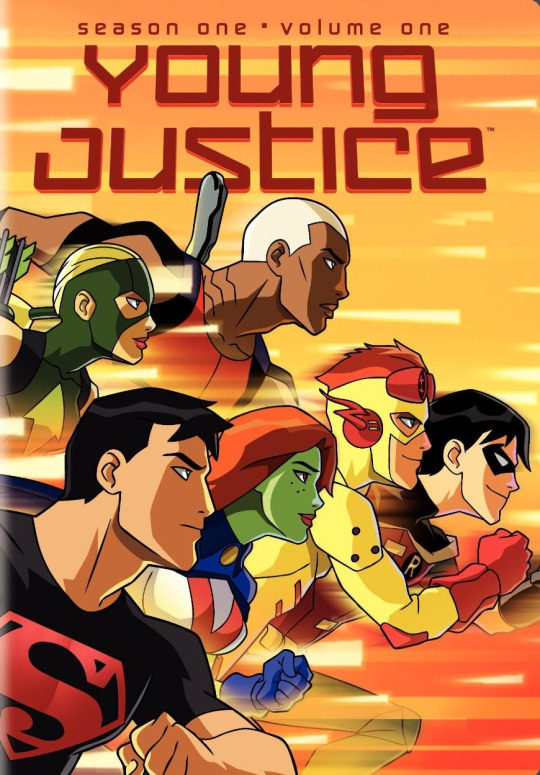
When I was a child, the in thing as far as superhero cartoons was Teen Titans. Years after its cancellation, the show Young Justice appeared to try to fill its shoes, however by the time it came out my interest in cartoons had waded. Alas on the dawn of the third season, a friend of mine suggested watching through it, and here we are. From 2010 to 2012, Young Justice season 1. Let’s Rock.
PLOT: We start off following the sidekicks Robin, Aqualad, Kid Flash, and Speedy, who are to be officially inducted into the Justice League. However, rather than full access they’re given second class status. To prove their worth they strike out on their own, and come to find a facility creating a Superman clone. After freeing the clone the Justice League decides to give them a bit of recognition, allowing them to form their own team. The show follows this team and their adventures, especially as they get tangled up with the conspiracy that created the Superman clone. After the two part first episode, most of the episodes follow a similar formula. Bad guy does thing, our main cast steps in and saves the day, and at the end we see a line of monitors talking about how their plan is still in motion. Over time the plot slowly advances and our lead cast grows their team. The problem I have with this is that it’s formulaic and can be very fatty. Episode 18 “Secrets” for example, is entirely pointless. It doesn’t connect to the plot or develop characters, and has one of the stupidest villains I’ve seen to boot. A lot of the show could’ve used more creativity or innovation, or just allowed plots to be more than one episode for more flesh. While it rarely had “bad” episodes, it didn’t have many great ones. Tried and true plots can do with some more spice. A lot of times due to the limited nature of the episodes things just get solved by convenience, this felt especially egregious. Speaking of, the season finale, while climactic, lacks much resolution. The series however was good with foreshadowing, a lot of small details early on that felt a bit weird were turned into full points later on, much to my surprise. There’s a good amounts of secrets and twists, but like the main villains of the show, they’re pretty crammed into the second half. As far as humor goes, the show’s decently funny. It has one of my favorite running gags in a cartoon.
5/10, while solid and effective, this series could definitely have used some creativity and ambition.
CHARACTERS: As with most cartoons, the burden of the series is put on characters rather than plot. In that regard it’s hit or miss. Most of the characters have some pretty solid bases but have some problems in execution. Robin is pretty solid the whole way through, the 13 year old Dick Grayson’s one of the more level headed team members, though can be immature and picked up some batmanisms. Aqualad was a personal favorite of mine. He became the team leader because of his calm consideration and responsible nature. He’s not perfect, but he had a warm charm to him. Kid Flash quickly became the comic relief, sometimes his incompetence got overbearing, and his love triangle antics could be grating but was rather likeable. Superboy was probably the character I had the most problems with, somehow edgier than Shadow the Hedgehog, there were too many “Superboy loses himself in a rage” moments. For as cool as he was I wish he would’ve grown out of those faster, his anger makes sense with his backstory but that didn’t make it enjoyable. Delayed entrances to the team include Miss Martian, who was supposed to be your airheaded pretty girl but green. While not particularly interesting until her backstory later down the line, she was generally pleasant. She did have a problem of being sexualized in uncomfortable ways on occasion, but I’m sure that’s a plus for some. Rounding out the team (as they appear in the opening) is Artemis. While charming in her relationships with others, the show spent a tad too much time obsessed with “her secret dark past” which led to the audience being unnecessarily suspicious of her come the introduction of the mole subplot. While generally most of the characters were likeable, how they were handled was imperfect. I specifically recall in episode 3 where Miss Martian came to a conclusion that the team and I’d assume a majority of the audience agreed with, and when proven to be untrue the whole team just turned and snapped at her in a very forced manner. It feels like the writing team doesn’t know how to handle romance and drama that well so a lot of these parts feel expedited and unnatural. Episode 11 for example. The first ten episodes hinted at some one-sided romantic feelings between two characters and the slight possibility that they might be returned, without much development between the two characters, they just start making out in episode 11 in a very forced and uncomfortable manner. While some of the couples do have good chemistry, it never gets to the openly romantic point in a natural manner. However these are simply a few pieces of the many forms of character interaction. In interactions other than team conflict and romance, the series does fine. As side characters go there is quite a few. I prior mentioned Speedy, who decides to do his own thing rather than join the team. As Red Arrow we occasionally get episodes that follow what he’s doing, however he suffers from similar problems as Superboy, coming off as too much of an asshole at times. Like Superboy he’s likeable, but sometimes he’s just obnoxiously angry for someone trying to be a hero of justice. The team is mentored by Red Tornado, who’s personality begins and ends with robot with a sense of justice. However, his simplicity makes him endearing in episodes with focus on him. The series gives a lot of focus to Captain Marvel, which I personally rather loved. His secret identity of Billy Batson allows him to have some interesting interactions with the team, and I found him to be a joy on screen. The only problem is he was stuck on what I refer to as “The Jobbing League.” Zatanna became a semi-prominent character towards the end and I found her to be a pleasant addition to the cast of personalities, but not overly remarkable. There’s a surprising amount of focus given to Doctor Fate, which I just found to be pretty cool. His appearances were usually kind of unexpected and always came with sick moments up until he too became part of the Jobbing League. As far as leaguers go, Batman was quite endearing with his role as a mentor. He spent the series trying to get Superman to bond with Superboy and it made him quite endearing. Otherwise the League had the Jobbing League problem. Many a time for the sake of stakes members of the League just got completely thrashed in a way that’d occasionally challenge suspension of disbelief. Other than that, the amount of leaguers on display was quite nice
6/10: There’s a lot to like here but there’s also a significant amount of problems.
VISUALS: When I first started episode 1, I knew I was in for a bad time when i could see an animation error in less than 30 seconds. This holds true for a good portion of the series, being filled with derpy faces, bad CG, and awkward walk cycles. While action scenes are well done, the animation can get lazy in any other type of scene. As for art, I’m not a fan of the style, it’s fine but feels a tad on the lifeless side. The insistence on CG models for a lot of things was quite obnoxious however. The characters all look distinct, but most of them don’t look interesting and I don’t think they’d fare well on the silhouette test. All in all not much to say in this regard.
5/10: While it’s passable on average, any high moment has to compete with the amount of mistakes made.
SOUND: When it comes to music, it’s very indistinct. While the music did it’s job fine it never rose above the call of duty or stood out in any memorable manner. The opening and credit songs are incredibly forgettable and indistinct. The voice acting on the other hand was done pretty well, aside from the Flash in the first two episodes I never found anyone’s voice to sound problematic. The lines were delivered with emotion and even shared voice actors were distinct in different roles. I wanna give a shout out to episode 3′s Mister Twister for sounding cool as heck. I kinda wish he showed up more just so I could listen to him again. Sound effects and diegetic noise were on point. All the gadgets and gizmos sounded right, with alien things sounding alien.
7/10: A job well done. The one notable goof was outdone by some small victories.
FINAL SCORE: 6/10
This series has a lot of problems, while not bad it’s by no means great. I imagine any fan of superhero cartoons will find it fine, it’s not going to bring anyone into the fold. I’m interested enough to continue with the series, but of all things on my plate right now this is the one I have the least love for. If the premise interests you it’s worth a shot, but it’s no must see.
4 notes
·
View notes
Text
Helpless
This was requested by the Timzussy Cokeheads!
Masterlist – Plot: Tom misses Zendaya when in London and resorts to watching old interviews of her.
Helpless (One-Shot)
One day – it was all Tom needed for him to start missing Zendaya again.
Despite having elongated his stay in L.A. following the Oscars and spending every waking moment by her side, a few hours apart was all it took for the sadness to kick in. He had thought that sometime at home, before the first leg of the Infinity War press tour, would do him some good. After Infinity War promotion, Tom was scheduled to be shooting movies back-to-back in the States and he didn’t know when he’d have the time to come back to London next.
But here he was, at home, sat with the likes of Harrison, Harry and Tuwaine and all he could focus on was the biracial beauty he had left weeping in her car at the airport. Their goodbyes were always tough; hiccups, tears and long hugs. And this time had been no different.
It seemed Zendaya had become selfish since the offset of the new year. Her and Tom had spent so much time together as of recently that finally letting him go made the pain increase threefold.
“Tom.” She had hiccupped in his arms, her nails refusing to release the t-shirt she was clinging to ever so tightly. “A month is a long time-“
“I know, baby, I know.” Tom had just held her as she cried into his chest, his eyes glancing between her and the watch on his wrist. As much as he wanted to soothe her, he had a flight to catch and he was already late. “But I have to go, okay?” Zendaya nodded slowly in his arms, her forehead resting against the slightly damp spot on his shirt. “I’ll see you soon.”
“I love you.” She had said after reluctantly pulling away so that their lips could skim over one another briefly.
“I love you too.” Tom’s voice had been sullen. This upcoming month of absence was going to be busy for both Zendaya and Tom and despite wanting to be idealistic, he knew their video chats and phone calls would be a rarity. So, he’d kissed her goodbye again, his mind desperate to memorise every little detail of her.
But that moment of memorisation was to no avail. Because, as Tom sat with a beer and his dearest friends close by, his mind couldn’t seem to conjure up a definitive image of Zendaya. He couldn’t remember if the tips of her hair were more soft brown or blonde; if the light dimple was on the left side of her cheek or her right. He was obsessed and regardless of how much he missed his friends and family, they were no longer at the forefront of his mind. The thoughts of Zendaya were penetrating his every thought and he couldn’t seem to focus on anything else.
In fact, he was so clouded by Zendaya’s entirety, he was sat Googling his own girlfriend. Like he had presumed, the time difference between L.A. and London was problematic and Zendaya wasn’t answering his calls. So, that only left him with one other option – stalking her online. It was like he’d been transported back to the day he’d first met her. He’d previously seen her goofy videos - singing to Beyoncé in her car- but it was after her screentest when he’d truly taken a moment to do his research on her.
But that research-based stalk wasn’t as extensive as the one he was partaking in now. At first, his stalk just consisted of pictures. It had been an amateur attempt; a simple name drop into a search engine. And as he scrolled and admired, Tom realised how crazy it was, how there was so much of Zendaya’s life that he didn’t know about. There were photoshoots from Dolce and Gabbana and Cover Girl; big projects he didn’t know his girlfriend had been so heavily invested in.
It was then that Tom’s stalker grew wider. An article had cropped up about Zendaya’s coinciding musical and fashion involvement with Vivienne Westwood and Tom couldn’t help himself. He was sat in a bar, completely anti-social, as he watched Zendaya’s ‘Close Up’ video.
Admittedly, it was his first time seeing the video and he was gobsmacked by that fact. There was his Disney Channel affiliated girlfriend with smouldering eyes and wet clothes, her body rocking to the beat of an avidly sexual song – her song. Her hands roamed her body, her fingers playfully knocking off the sleeve of her dress and Tom felt his mouth go dry. Slyly yet skilfully, at the end of the video, Tom had his knees pulled close to his chest; a feeble attempt at hiding his now raging boner from his little brother sat next to him.
From then onwards, it was a downward spiral. YouTube’s automatic playback feature was on and Tom was helplessly compelled to watch video after video.
Up next on his list was a video that featured him – it was from the Spider-Man: Homecoming press tour and Tom inwardly cringed once he noticed the exact video he was watching. It was a day that had consisted of great damage control. He and Zendaya had been in the early stages of their relationship, at the time, and he’d thought he’d been sly when he’d mumbled how ‘prepared’ and ‘pretty’ she looked. The compliment had been instinctive, and he thought nobody would catch on. But, once people began to analyse his every word and move, Tom truly realised how his life was about to change. It was the moment that the light bulb went off over his head and he realised that all of this was real. No longer was he Thomas Stanley Holland, the little boy from Kingston, he was Tom Holland, the actor, the person whose every little detail was scrutinised – including his love life. It was safe to say, that interview had catalysed the media obsession with the label behind Tom and Zendaya’s relationship.
The video Tom watched after that one was an interview, a recent one – The Tonight Show starring Jimmy Fallon. She was dressed in that all black and red ensemble with a huge slit up her leg. The interview did nothing to help diminish how turned on Tom was but, it did make him smile too. Unlike some people he had had to face in the industry, unbiasedly, Zendaya didn’t have to uphold a façade when in front of the camera. She was herself, cracking jokes and making people laugh.
And that naturally funny character was translated in the compilation of her old Snapchat videos. As Tom had learnt over the course of their relationship, Zendaya was a terrible driver and that was embodied through the Snapchat series of videos that she’d posted when she’d gotten her car stuck hanging off the sidewalk. He watched the videos with a great fondness, his smile reaching his eyes as she stubbornly tried to fight her mum who was the least bit impressed.
Others who also weren’t impressed were Haz, Harry and Tuwaine. They’d brought Tom out to spend some time with them and he’d spent the majority of the night sat in the corner on his phone. His eyebrows would pull together occasionally, and a stupidly bright grin was plastered across his face, a tell-tale sign of him thinking about Zendaya.
“Yo, Tom.” Tuwaine threw a screwed-up piece of tissue at him, the thing landing smack bang in his face. Tom glanced up from the Versace on the Floor video unenthusiastically and jokingly scowled as he noticed Tuwaine filming him for his Instagram story. “What are you thinking so hard about?”
“I think I might head back to L.A. a little sooner.” Tom tried to play his comment off casually, but his friends were quick to catch on.
“Oh! And why is that?” Haz mocked, his chin resting on his hand as he tried to look greatly interested in the question he already knew the answer to.
“I know, I know. Pick me, pick me!” Harry raised his arm in the air and eagerly pestered Harrison as if he were a child at school, begging to answer a question in class. Harrison just nodded, the chuckles leaving Tuwaine whole heartedly. “Because his girlfriend looks like this.”
Harry turned his phone around slowly to show off Zendaya’s new collaboration photoshoot with the clothing brand, Boohoo and Tom’s jaw hit the floor. She was beautiful, so beautiful it was hard registering the fact that she was his. And within seconds, his erection was back at it again. He snatched Harry’s phone out of his hand and scrolled through the handful of shots – why hadn’t Zendaya sent him the pictures herself? Of course, he knew she was involved in the project, he just didn’t know the pictures had been released so soon. Harry showing him them was like an ambush, an ambush he had no control over. Blood was rushing to his groin and he groaned, Zendaya was sporting look after mother fucking look, her long legs and flat stomach on display.
“Shut up.” Tom whined lamely, his mind unable to think of a witty comeback. Honestly he had no leg to stand on because, it was the truth, Zendaya was definitely the only reason he was eager to head back to L.A.
If you enjoyed this piece and would like to help further me and my work, please support me whilst I get through university. The money you donate will go towards assisting me in my student fees. It is one hundred per cent a voluntary pursuit and greatly appreciated, however, your lovely comments and votes are always welcomed too. Thank you for being the greatest: https://ko-fi.com/D1D072V0
#tomdaya fanfiction#tomdaya#tomdaya fan fic#tomdaya fan fiction#tomdaya fanfic#ritebeforeyoureyes#helpless
33 notes
·
View notes
Text
Epic Movie (Re)Watch #226 - Zoolander
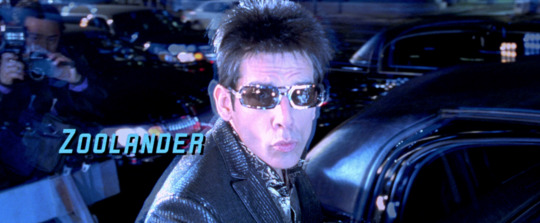
Spoilers Below
Have I seen it before: Yes
Did I like it then: Yes.
Do I remember it: Yes.
Did I see it in theaters: No.
Format: DVD
1) This film’s opening sequence is actually very interesting. We get an early feel for the film’s sense of humor as well as the surprisingly tense intrigue which gives the movie its edge.
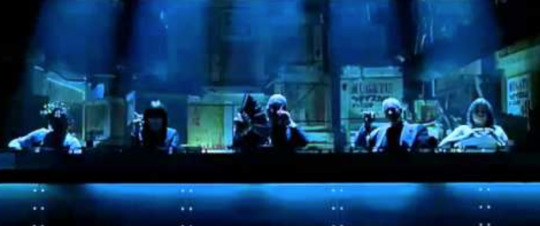
2) Fuck, there’s a Donald Trump cameo in this movie. Fuck that guy.
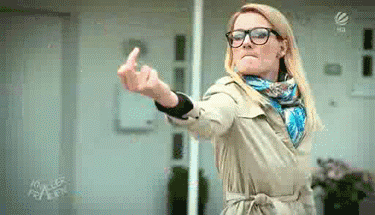
3) Ben Stiller as Derek Zoolander.
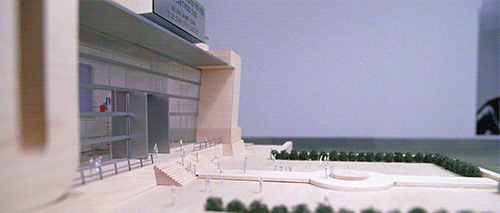
This is one of Stiller’s more unique performances, as it doesn’t rely on as much of a dry sense of humor like many of his other movies do. The idiocy of Zoolander allows for Stiller for some more room to play around. It is a trick to make Zoolander stupid but still likable, someone the audience sympathizes with and roots for. There is a risk of wanting him to fail because he’s so vain, but Stiller is able to get the heart of the character across. Yes, he’s stupid and vain, but you never get the sense that he’s being malicious. It’s this performance which is a key reason Zoolander has become the cult classic it is today.
4) Owen Wilson as Hansel.
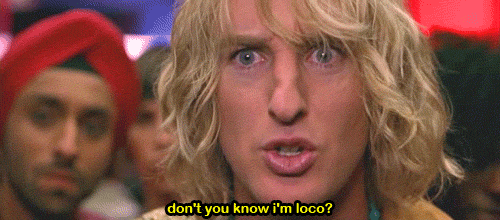
A little less outlandish than Stiller’s Zoolander, Wilson still is able to define Hansel with a number of quick/off the cusp lines. His chemistry with Stiller is a standout part of the movie as he is mostly an enigma/enemy for most of the film before becoming an ally by the time the credits roll. His idiocy is on par with Zoolander’s and Wilson is still able to play the character as sympathetic, but he’s cut from a different cloth. He’s a different kind of idiot than Derek. The one thing I don’t get is, why is Hansel the rookie? Aren’t Ben Stiller and Owen Wilson the same age?
5) The tone of this film is unique for a broad comedy. The story is surprisingly dark (?), largely about Derek’s downfall and the risk he has of being a murderer. In most of the film, every scene just makes things worse and worse for Derek.His three best friends die an explosion, he’s largely mocked/humiliated/manipulated, he’s dealing with an existential crisis about who he is, and he’s rejected by his family. All of this gives the movie a unique edge, a defining flavor which has helped it be so endearing for so long.
6) Oh look, Jerry Stiller’s character just sexually harassed a woman by pinching her butt without consent. And it’s played off as a joke. Ah, 2001.
7) Will Ferrell as Mugatu.
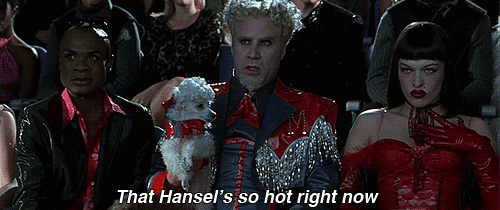
One of the best scene stealers in a film FILLED with scene stealing performances, Ferrell (who is funny in pretty much all the movies he’s in) plays Mugatu with such bizarreness and occasional mania it’s hard not to find the performance funny. He’s the bad guy, a total weirdo with some serious self worth issues he’s covering for, and Ferrell just has so much fun in the part (meaning the audience has fun watching him).
8)
Maury [played by Jerry Stiller] (after Matilda asks for his opinion on Mugatu): “You want an opinion? With a good push up bra you could actually have a nice rack.”
Was this ever funny and not just painfully sexist?
9) Milla Jovovich doesn’t get enough credit for this film as Katinka.
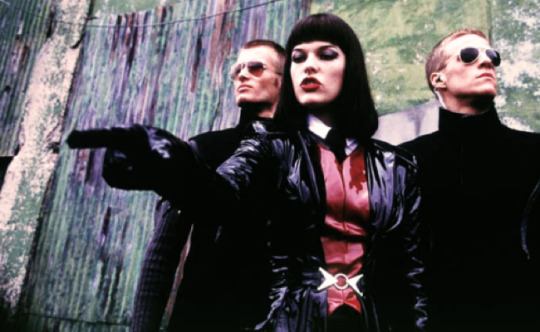
Her role may be smaller than say Will Ferrell’s, but she owns it completely. Every moment she’s on screen is hysterical and defined by her bravado. I didn’t even realize it WAS Milla Jovovich the first time I watched this movie, she’s that good.
10) Derek’s hypnotism scene (and following karate scene) is wonderfully bizarre and represents the film’s sense of humor well. It’s all so strange and outlandish, unlike most other broad comedies of the time, it’s hard not to be memorable.
youtube
11) Christine Taylor as Matilda.
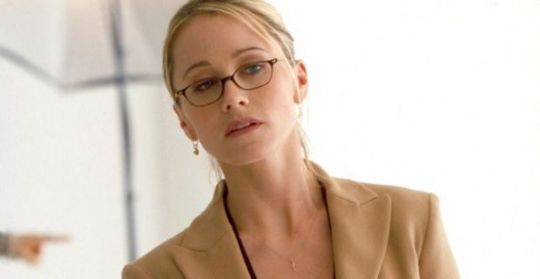
Taylor is largely the straight woman in the film but plays against Stiller well. She’s not the worst written female protagonist in an early 2000’s broad comedy I’ve seen, but she could be better. The character is made interesting more by Taylor’s performance - which imbues her with a sense of humanity, realism, and passion - than the writing, which has her more as a plot device than anything else. But, like I said, could be worse.
12) Ah! Winona Ryder is in this movie! I forgot about that.
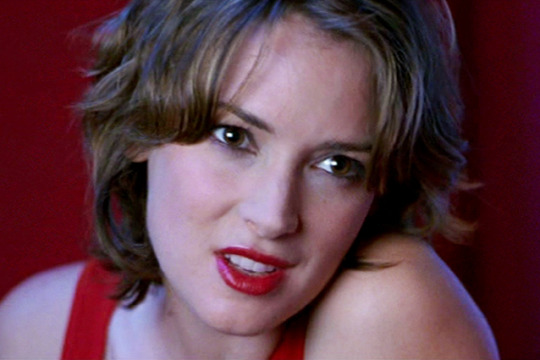
13) The pre-walk-off encounter.
youtube
This scene is supported almost exclusively by the chemistry between Wilson and Stiller. Wilson in particular takes command of the scene, stealing it even from Zoolander with great lines like, “Don’t you know I’m loco?” It’s a lot of fun.
14) DAVID FREAKING BOWIE!
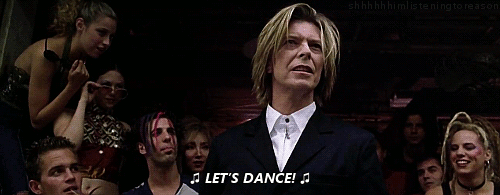
15) The Walk-Off
youtube
Quite possibly the most fun scene in the entire film, it is once again made by Ben Stiller and Owen Wilson just letting loose on screen. It just keeps building, the ridiculous of it all, supported by strong editing and fitting music, before reaching its inevitable and hysterical climax.
16) This film features a wonderfully weird character detail of Derek not being able to turn left. I can’t even imagine how anyone even thought that up but it just helps to define the movie.
17)
JP Prewitt: “The fashion industry has been behind every major political assassination over the last two hundred years.”
That’s it. That’s the plot of this movie. That’s the concept. And how totally freaking random and wonderfully weird it is. That idea on its own is hysterical.
18) David Duchovny’s role as JP Prewitt in this film is brief but a strong one. Definitely calling back to his role as the conspiracy obsessed Mulder on “The X-Files”, he helps support the film’s unique mystery driven tone.
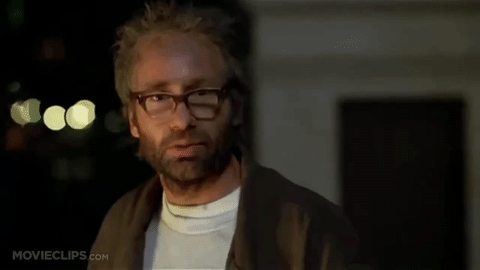
19) According to IMDb:
Derek's repetition of the line "But why male models?" for the second time, in the cemetery scene, was an ad-lib by the actors; Ben Stiller forgot his line and simply repeated the earlier line again, and David Duchovny ran with it and gave him a straight answer.
20)
Matilda: “That shemale Katinka is not messing around.”
Ugh, I do not mis the early 2000s transphobic humor.
21) The heart to heart between Hansel and Derek is surprisingly poignant and sweet. They’re able to communicate honestly about their insecurities and move past it to be friends. I wish more of my gender was like that.
22) Matilda’s backstory is a double edged sword. On the one hand, her feeling about unattainable standards of beauty are incredibly realistic and great to feature on film. On the other, Derek and Hansel make jokes about her being bulimic (even if they apologize for it later). So, take that as you will.
23) Did we REALLY need an orgy scene?
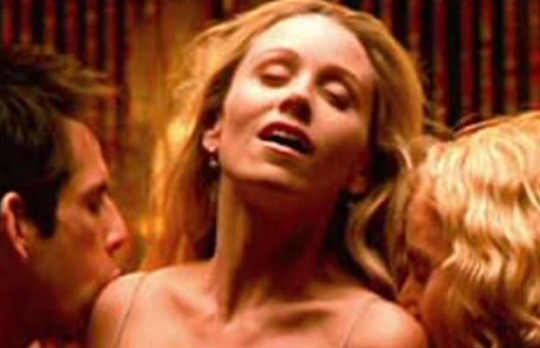
24) The breakdance fight between Hansel and the DJ is pretty funny, specifically in the constant changes in music it yields.
25) Sometimes, I’m Mugatu.
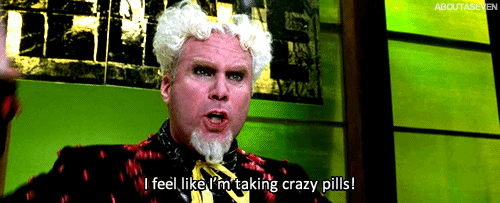
26) And Derek stops a throwing star with a look. That’s how this film ends. Because why not?
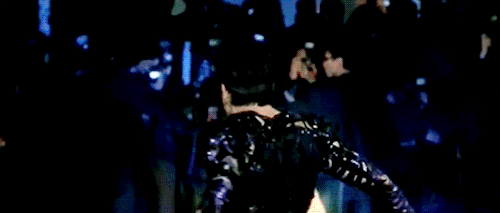
27) The ending at Derek’s school is surprisingly sweet. It feels earned, sincere, and sympathetic. He’s worked past the BS of his life to actually help people (or at least, what this film presents as helping people). Hooray!
Zoolander is not for everyone. But if you’re a fan of kinda dumb comedies then you’ll dig it. It’s very funny, supported by Stiller’s performance as well as those he surrounds himself with (Ferrell, Wilson, Taylor, Jovovich). It’s a good movie to relax to and just enjoy. So maybe give it a shot.
#Zoolander#Ben Stiller#Owen Wilson#Will Ferrell#Christine Taylor#Mila Jovovich#David Duchovney#David Bowie#Epic Movie (Re)Watch#Movie#Film#GIF
15 notes
·
View notes
Text
England’s Greenery
When it comes to directors, there are usually two kinds. The first is the artist. When you watch a film by Spielberg, Scorsese, or Tarantino, you’ll know within minutes that they directed it. Shot choices, casting, and even their thematic obsessions will clue you in, allowing you to calibrate your enjoyment appropriately.* You’ll always know you’re watching a film by Brian De Palma, just like you’ll always know you’re watching a film by Kevin Smith.
The second category is the artisans. These are filmmakers that usually don’t have a directorial signature. They get in there, do the job, and allow either the actors or the story to take the limelight. Bear in mind that while artisans can sometimes be little more than studio hacks, they can also be unappreciated masters. Stuart Baird is one of the greatest editors in the history of film. He’s also directed Executive Decision and U.S. Marshals, both of which are perfectly entertaining movies.
Here’s where it can get weird. Occasionally there’s crossover, and I submit to you that Guy Ritchie is one of the ideal examples of this. Ritchie had his mind blown after seeing Butch Cassidy and the Sundance Kid. He dropped out of school, blew off film school, and made a name for himself as a maker of hyperviolent gangster comedies featuring hyperverbal characters. Give Snatch or Lock, Stock and Two Smoking Barrels a watch and you’ll realize nobody else could have made those films that way.
For a few years, those kinds of films were mostly Ritchie’s bread and butter. Then, he stepped over to the artisan side with directing gigs on films such as Sherlock Holmes, The Man from U.N.C.L.E., and Aladdin. Some of them were good fun, while others felt like the work of a hired gun. Nobody ever said making a multimillion-dollar film for a major studio would be easy. Perhaps that’s why Ritchie stepped away from Hollywood and returned to the mean streets of London with his new film The Gentlemen.
Raymond (Charlie Hunnam) is a man of refined tastes and a retiring manner. He probably doesn’t scream at customer service personnel and likely thanks people who hold the door open for him. He’s calm, cool, and collected, and I suppose you’d have to be if you were the number two man to Mickey Pearson (Matthew McConaughey).
Mickey is a self-made man, though unconventionally self-made. A poor childhood in America and a Rhodes scholarship brought him to England. A burning desire for success led him to become a marijuana dealer. Mickey is good at what he does, and his empire that’s worth $400 million bears that out. If he’s had to get a little rough sometimes? Hey, that’s how the game is played. His wife Roz (Michelle Dockery) is cool with it, and she can dish out the punishment herself if needed.
Now, Mickey yearns for respectability, and a monster deal to sell his business to American billionaire Matthew (Jeremy Strong) seems to be the key to making that happen. The only problem is Triad underboss Dry Eye (Henry Golding), who’s decided to muscle in for a cut. Sorry, I meant problems, as the death of a young Russian man by falling from a very high place doesn’t help things, nor does the heroin addiction of a young royal.
Raymond’s job? Well, he has to deal with all of that on his boss’s behalf, as well as reckon with the unwelcome attentions of Fletcher (Hugh Grant), a slimy private detective running a…let’s say, ambitious blackmail scheme. Fletcher has taken it upon himself to incorporate all of the above events into a screenplay, so on top of everything else, Raymond also has to handle things becoming uncomfortably meta. I hope the guy gets paid well, at least.
If you’ve ever seen any of Guy Ritchie’s early work, then know that The Gentlemen is exactly like that. If you haven’t, strap in for frenetic pacing, serpentine plotting, and a network of criminals who quip as though their lives depend on it. Ritchie has made a perpetual motion machine built to entertain, and it’s not unlike hearing a fabulous (and long-winded) joke while having a few drinks. You won’t remember all the details later, but you will remember you had a hell of a good time.
While the screen story was written by Ritchie, Ivan Atkinson, and Marn Davies, Ritchie wrote the screenplay itself solo. Much like many of Ritchie’s earlier films, his screenplay for The Gentlemen is ridiculously complex. It’s not really about anything, and most of the characters kind of have the same voice, but the same criticism could be thrown at Quentin Tarantino. I’m fine with all of that, and I’m fine with his rapid-fire wordplay and multiple plots that intersect like something out of an M.C. Escher nightmare. I was not fine with the recurring racism or the threat of sexual assault toward the only major female character. I get that scumbags are gonna scumbag, but it’s not a great look, considering that so much of Ritchie’s script is smart and witty.
The smart and witty scripts Ritchie writes are likely the main reason he’s able to consistently attract top-shelf actors. You can’t blame them since everyone has a moment to be either a) cool, b) scary, c) funny, or d) all of the above. Matthew McConaughey does good work as the lordly Mickey, but his inclination for delivering laid-back performances means he’s often pushed into the frantic background. While everyone is good, two actors handily upstage him. The first is Colin Farrel as Coach. He’s an affable Irish boxing coach who tells everyone who listens that he’s not a gangster while constantly engaging in very gangsterish behavior. The second is Hugh Grant as the dirtbag who walks like a man Fletcher. It’s amazing to me that the guy who made a name for himself in lightweight romantic comedies has become one of the most unpredictable and entertaining character actors working today. As Fletcher, Grant is essentially delivering an unbelievably long monologue, and he does so with fearlessness, wit, and buckets of sleaze. If there’s one reason to see this film, it’s Grant’s “can you believe I’m getting away with this?” performance.
Thomas Wolfe wrote that you can’t go home again. With The Gentlemen, Guy Ritchie proved him wrong. Sure, he’s not exactly breaking new ground here or doing anything particularly profound. I’m okay with that, as Ritchie slips effortlessly back into his groove and delivers a solid and much-appreciated piece of entertainment.
*For example, the elderly couple a few seats down from me had apparently never seen a Guy Ritchie film before. The violence and rampant profanity caused them to leave, muttering darkly, after 45 minutes.
from Blog https://ondenver.com/englands-greenery/
0 notes